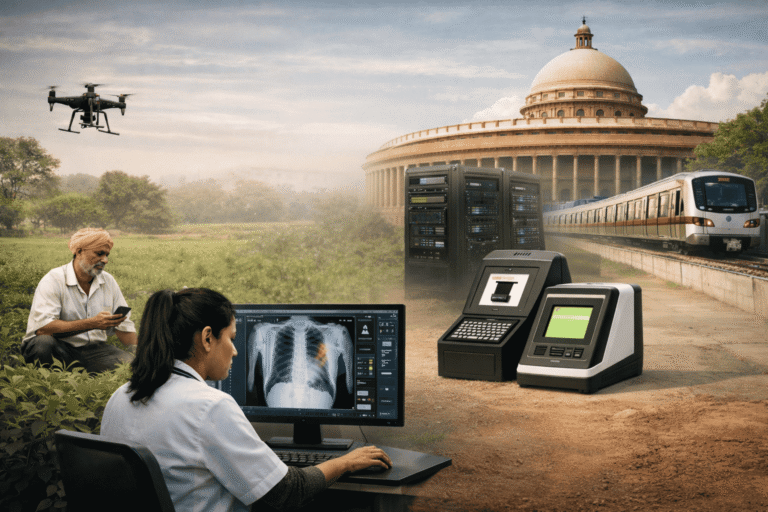Artificial Intelligence is rapidly reshaping our world, and a recent webinar by NuSocia, featuring leaders from policy and corporate sectors, confirms that its biggest impact may be on the future of work and skills in India. The discussion highlighted a stark reality: jobs aren’t disappearing, but they are evolving into roles where humans augment their abilities with AI. While this brings incredible opportunity, it also breeds fear. What if the AI is wrong? What if we can’t trust its output?
The Problem: Using a Supercomputer Like a Calculator
The NuSocia Digital Skills Landscape Study reveals a critical digital skills gap, with 70% of school and university courses offering no digital skills training at all. This gap becomes even more dangerous when powerful AI tools are placed in the hands of users without the proper training or context.
When AI is used in research without a deep understanding of how to guide it—a skill now known as prompt engineering, it can produce analysis that is flawed, biased, or simply incorrect. This is the core of the anxiety many feel. Using AI isn’t a simple transaction; it’s a dialogue. Without the skill to provide the right context, critically review the AI’s output, and understand its limitations, we risk generating poor research and bad conclusions. The push towards explainable AI, where models can articulate their reasoning, is a direct response to this “black box” problem.
The Solution: Brave Iteration and the Human Touch
The goal is not to fear wrong answers from AI, but to be brave enough to find the right ones. This requires a shift in mindset from seeking instant perfection to engaging in a process of collaborative iteration. It takes work. It means treating the AI less like an oracle and more like an incredibly powerful but junior research assistant. You must guide it, question its findings, ask for revisions, and refine your own prompts until the output is accurate and insightful.
This new reality elevates uniquely human skills. As AI automates technical tasks, the most valuable assets become critical thinking, empathy, and collaboration. Ameya Vanjari of Tata Strive noted that the competency of reviewing AI-generated content is becoming more important than pure creation. Similarly, the consensus from the panel was that as technology advances, the “human touch” becomes more critical than ever.Ultimately, AI is a powerful tool for inclusion, capable of creating hyper-personalized learning paths and breaking down language barriers. But like any tool, its value is determined by the skill of its user. Embracing a journey of lifelong learning and investing in both technical and human-centric skills is the only way forward. We don’t need to be more machine-like; we need to become more human.




